Marine pollution management is a comprehensive operation involving the management of routine authorized pollution sources and the management of emergency pollution events, with the participation of multiple agencies.
EGIT helps government agencies integrate information across departments, establish a marine pollution management system, and reduce emergency response time.
Marine Pollution Control System
EGIT's unique ability to consolidate information and GIS capability allows us to collect data from marine pollution sources across the country and from the relevant competent authorities. These efforts led to the establishment of the Marine Pollution Management GIS, which is based on the Web GIS platform. The system presents data in two modes: the GIS system and the emergency event document, while outputting information needed for managing routine tasks and emergency management. By providing real-time spatial information on the events, the decision-making efficiency and control mechanism required by the emergency response protocol can be improved.
In line with regulatory requirements and operational needs, we enhance information support tools and data-driven decision analysis tools. The goal is to significantly reduce response time to pollution events and minimize the likelihood of pollution spreading. The platform was developed with multiple application functionalities and customized database maintenance and management tailored to user needs. This approach is designed to increase overall system functionality and efficiency.
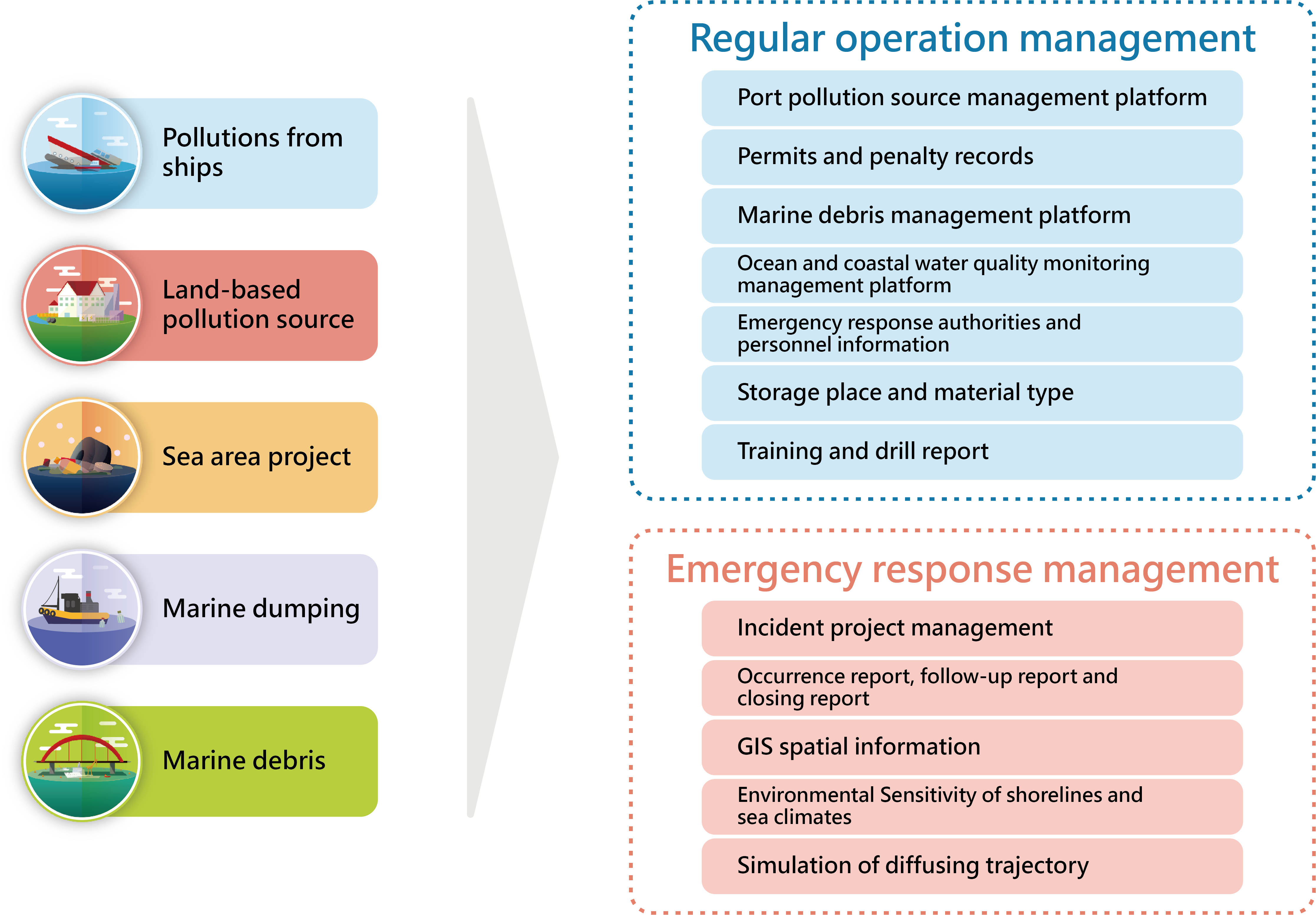
Marine pollution control system structure
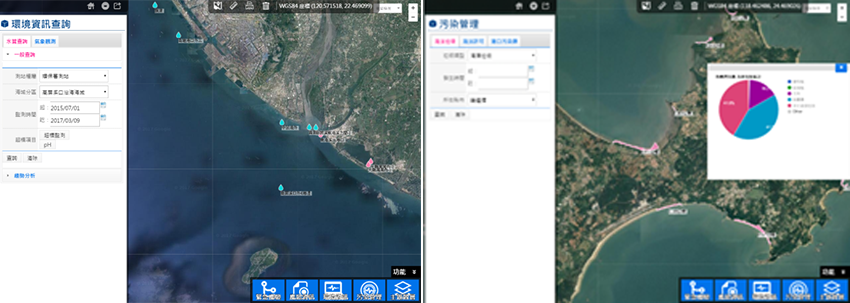
Marine pollution control system - Information inquiry and pollution management
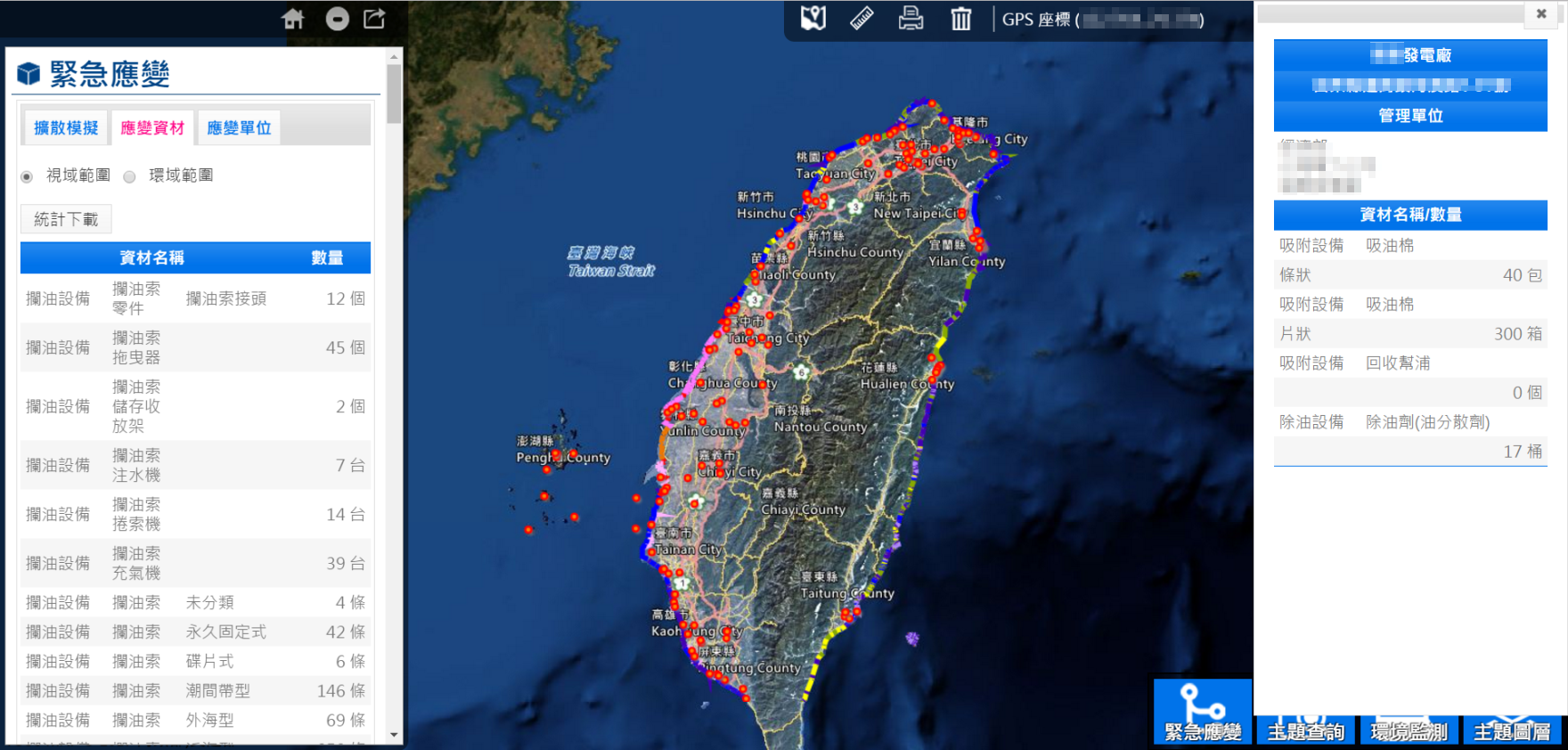
Marine pollution control system - Emergency response logistics dispatching
Permit Verification and Pollution Prevention Assessment
The Marine Pollution Control Act is aligned with the United Nations Convention on the Law of the Sea. The law includes regulations on marine pollution sources such as oil transportation, onshore pollution sources, offshore engineering, marine waste and ships. It requires the submission of contingency plans for marine pollution and requires financial guarantees or liability insurance policies for compensation in the event of pollution damage. Of particular concern is the transportation of oil, where accidents can result in significant marine oil pollution. EGIT has worked with regulators, helping to formulate key control points for permits and conducting on-site inspections to provide valuable recommendations.
In evaluating the effectiveness of marine pollution control efforts by county and city regulatory authorities, EGIT has played a role in developing pollution control assessment plans. This involves conducting assessments on marine pollution response and drills, marine pollution inspection and control, and the Achievements and Innovations in Marine Pollution Prevention and Seabed (Drifting) Debris Removal effort. Administrative coordination work execution is also evaluated, including on-site assessments to understand the preparedness, planning, maintenance, storage management, and practical operations of the evaluated units in dealing with marine pollution.
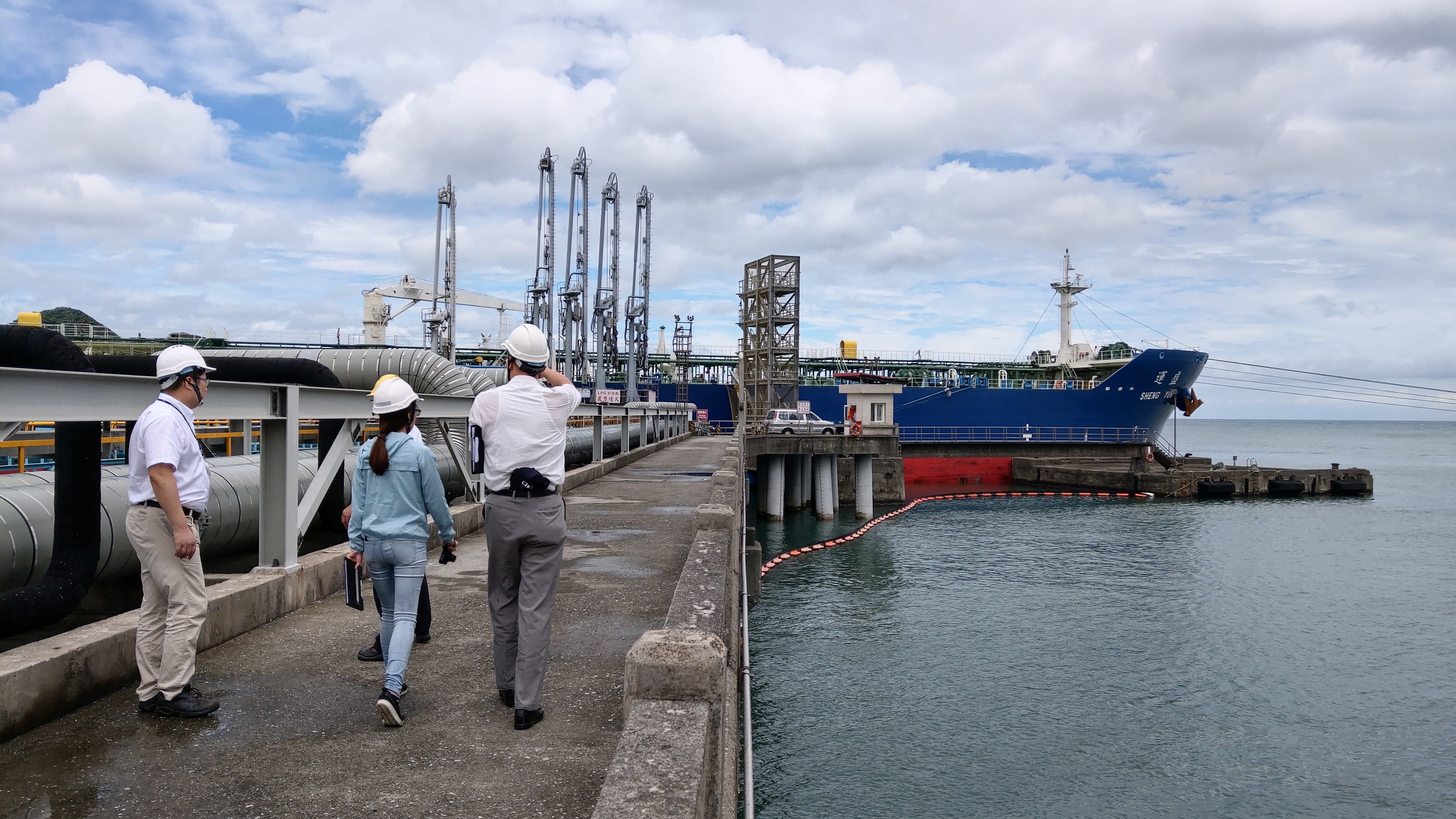
Permit verification
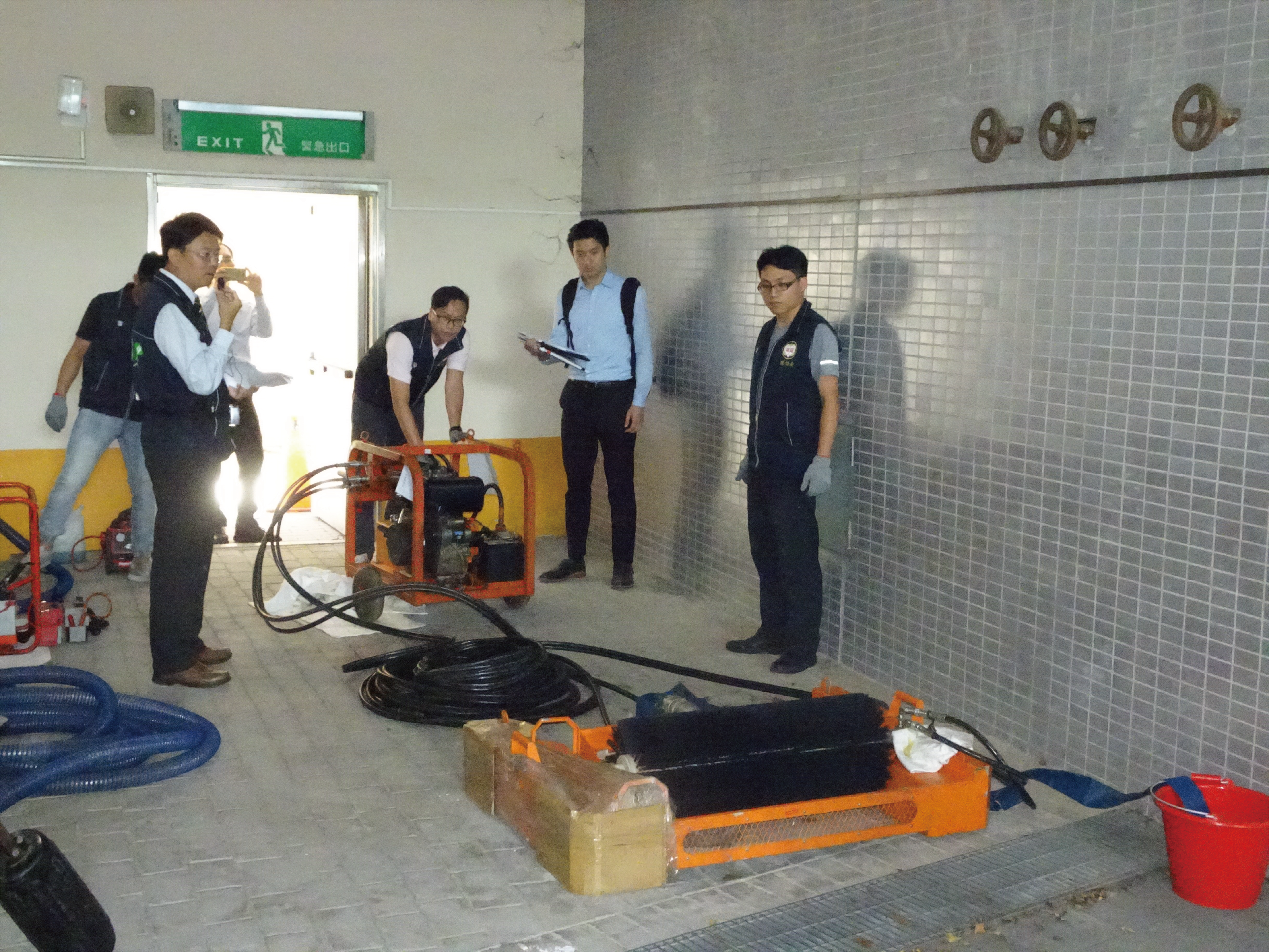
On-site assessment of equipment operation
Emergency Response Support and Personnel Training
EGIT has obtained the IMO-approved Oil Spill Response Level 1 - Level 3 and Hazardous and Noxious Substances (HNS) certificates from CEDRE (Centre of Documentation, Research and Experimentation on Accidental Water Pollution) in France. In addition, EGIT has assisted in the stranding of the container ships TS Taipei and CPC Kang Yun by providing data analysis, support in decision making, manpower and equipment, UAV observation, low illumination high resolution surveillance equipment and management of emergency meetings. EGIT is skilled at leveraging its information consolidation expertise in onsite response and is well experienced in responding to marine pollution events.
Armed with extensive practical experience, EGIT knows well the emergency response competence required at every level. Therefore, our team has also served as the bridge between government agencies, CPC, ITRI, and emergency response teams, and internationally expert organizations. EGIT provides training courses appropriate to the subjects and objectives and helps with acquiring IMO certification. In addition, EGIT conducts communication exchanges with foreign experts and invites them to Taiwan to offer classes and consultation.
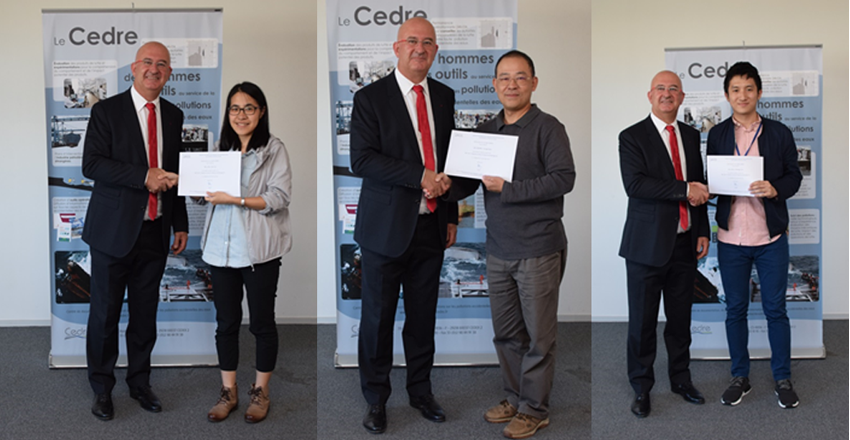
EGIT staff earns the Cedre certificate
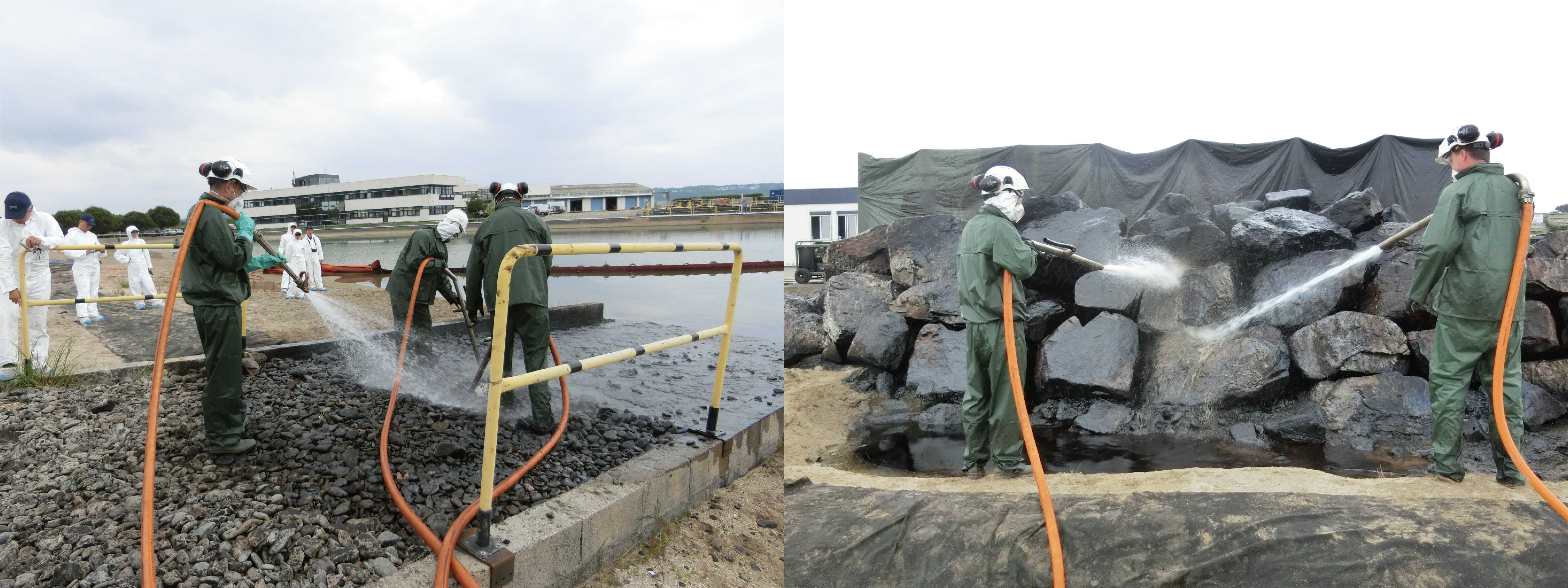
Training in Cedre, France - shoreline cleanup in various coastal topographies
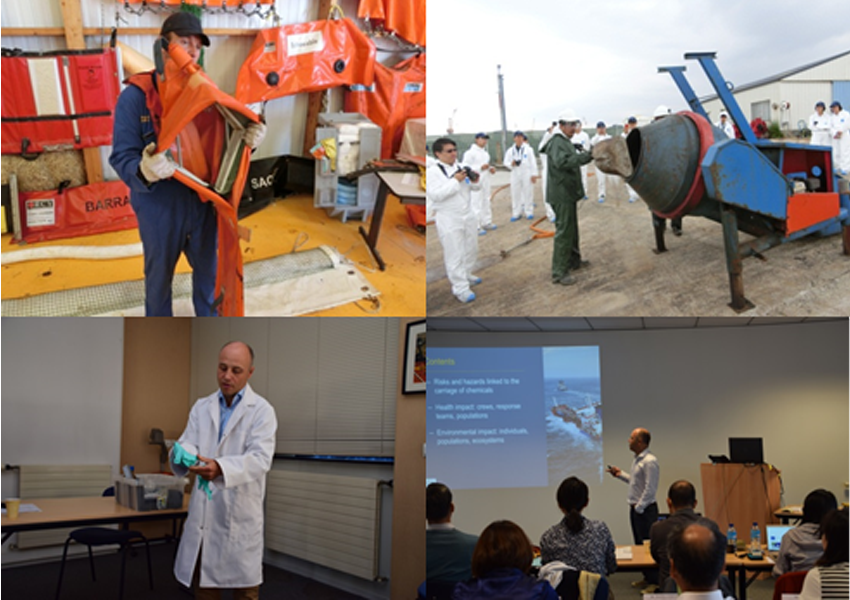
Training in Cedre, France - in class